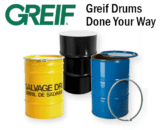
Dangerous Goods is a team sport. Whether you handle one hazmat shipment a week or several thousand a day, you likely rely on partners to help you stay compliant with optimal efficiency.
Your need for partners is especially acute when your business involves large format lithium batteries—and the bigger the battery, the more help you’ll need from those partners. When you’re talking about batteries powerful enough for electric vehicles, solar power storage, data centers and other heavy-duty purposes, you can’t even think about going it alone.
Having partners in place is an essential step in your large format lithium-ion battery transport planning. But exactly which partners do you need? And—more importantly—what should you look for in those partners?
Read on!
Regulatory guidance
Why you need a partner: Compliantly shipping lithium batteries means navigating a complex set of regulations. With large format lithium-ion batteries, regulations can be even more challenging, because you have to consider a number of regulatory factors that don’t come into play with smaller batteries.
What you should look for in a partner: Experience and accessibility. You’ll need people who don’t just know the regulations backward, forward and inside-out, but who have actually helped organizations apply them. And you’ll need to be able to reach them 24/7 on short notice.
Packaging design and construction
Why you need a partner: Your large format lithium battery packaging is a lot more than just a crate—it’s a custom-designed, multi-component packaging system. To get it right, you’ll need to answer questions about modes, destinations, workplace constraints and the precise characteristics of your batteries.
What you should look for in a partner: A robust track record. Have they designed large battery packaging previously? Can they reliably source the necessary materials and components? Can they produce data showing their products’ durability? Do they offer end-to-end managed services beyond just the packaging? These are just a few of the questions you must ask any prospective partner.
Packaging testing
Why you need a partner: Packaging isn’t compliant until it’s passed several rigorous, U.N.-specified tests—and the tests often reveal shortcomings that require packaging components to be redesigned, reconstructed and re-tested. The process can be prolonged, so you need your testing to be accurate and reliable.
What you should look for in a partner: Specialized experience. Your packaging design partner should themselves partner with a top third-party testing company.
Important additional point: Packaging testing is critical and generally required for unique large format batteries, but for certain battery power ratings, weights and sizes, you may be able to use off-the-shelf packaging which has already been tested. Labelmaster offers several such options.
Packaging transport and storage
Why you need a partner: Once your packaging is built, you still need to transport units to where they’re needed and, sometimes, store them until they’re needed. Due to the size and complexity of the packaging involved, careless handling can damage crates before you’ve even used them.
What you should look for in a partner: Understanding what’s at stake. Ordinary LTLs may assume that what’s valuable is inside the crate, when in reality it’s the crate itself that’s valuable—and needs to be handled with the utmost care. Make sure your transport partner conveys this information to every driver.
Packaging damage and reuse assessment
Why you need a partner: It’s possible—and highly economical—to reuse large format lithium battery packaging several times. But each crate and all its components must be inspected after each usage, and any defects or damage need to be addressed before the packaging can be used again.
What you should look for in a partner: An uncompromising eye. One failed packaging component can cause a shipment to fail an inspection—or the worst-case scenario of a thermal runaway incident. Your partner simply has to catch the most subtle signs of wear and damage.
Battery assessment
Why you need a partner: Your large format lithium-ion batteries can often be repurposed or recycled, but they need to be evaluated before being returned to service. Distinguishing between damaged, non-damaged and end-of-life batteries requires expert assessment.
What you should look for in a partner: Experience and expertise. This is another area where you simply can’t afford a mistake, because your batteries’ condition often dictates which regulations apply to their transport.
End-to-end support
Why you need a partner: Your organization’s internal supply chain—and your various supply chain partners—may have varying degrees of experience and expertise with handling Dangerous Goods in general, and large format lithium batteries in particular. Many end users have no experience at all!
What you should look for in a partner: Experience and a deep bench. It’s smart to have a single uber-partner who, while not necessarily executing on all the above functions, can help coordinate them all while giving your entire supply chain hands-on advice and assistance.
Don’t put off finding your partners
If you’re already transporting large format lithium batteries, you likely have one or more of these partners in place. If you’re handling some of these functions in-house, however, you might be well-advised to seek additional expertise.
Some of the world’s largest manufacturers trust Labelmaster to help them handle large format lithium battery transport safely, compliantly and efficiently. You can, too. Contact Labelmaster today!
Make sure your shipments are safe and in complete compliance with a full line of solutions from Labelmaster—a full-service provider of goods and services for hazardous materials and Dangerous Goods professionals, shippers, transport operators and EH&S providers.


